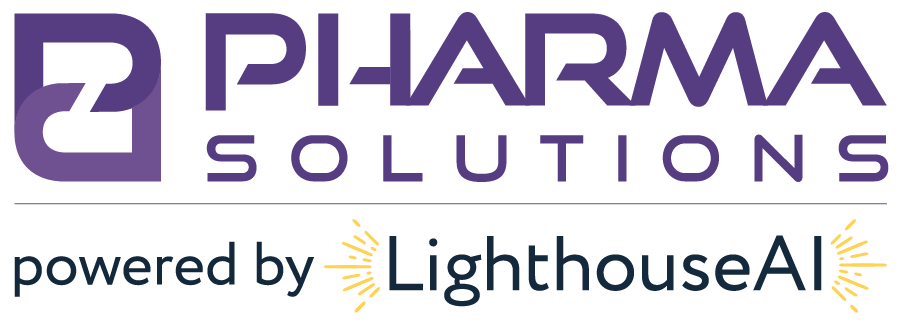New FDA Clarification Allows Wholesale by 503B Facilities to 503A Pharmacies
| by: Sumeet Singh, Founder & Chairman | Article Posted: July 5, 2023 |
New FDA Statement Overview
The recent clarification from the U.S. Food and Drug Administration (FDA) regarding the distribution of compounded medications brings both positive and challenging implications for the pharmaceutical industry. On one hand, the FDA’s statement allows a 503B outsourcing facility to supply medications to a 503A pharmacy, facilitating greater access to compounded drugs based on patient prescriptions. This development is particularly significant amid the ongoing issue of drug shortages. However, it is important to acknowledge that while access to compounded medications increases, drug manufacturers, as holders of drug files, may face negative consequences in an already challenging environment. This article explores the dual impact of the FDA’s clarification, highlighting improved patient access alongside potential challenges for drug manufacturers.
FDA Interpretation on Compounded Drugs
In its recent announcement, the FDA stated, “FDA interprets this provision to mean that a drug compounded by an outsourcing facility may be eligible for the exemptions in section 503B of the FD&C Act where the drug is distributed directly from an outsourcing facility to a health care facility, such as a hospital or clinic, where the drug is administered to a patient, or to a State-licensed pharmacy or Federal facility where the drug is dispensed pursuant to a prescription executed in accordance with section 503(b)(1) of the FD&C Act.”
Enhancing Patient Care Amidst Drug Shortages
The FDA’s clarification offers a glimmer of hope for the pharmacy industry, addressing the persistent problem of drug shortages. Compounded medications serve as a vital alternative when commercial options are limited or unsuitable. By allowing 503B outsourcing facilities to collaborate with 503A pharmacies, patients in need will have improved access to essential compounded medications, ensuring they receive necessary treatments based on legitimate prescriptions.
The State of Nevada recently signed SB 161 into law on June 13th which at the state level clarifies that a 503A may in fact purchase and dispense product compounded by a 503B. This development is a positive step toward meeting the evolving healthcare needs of patients.
Expanding Opportunities for Collaboration
The FDA’s interpretation opens up avenues for collaboration between 503B outsourcing facilities and 503A pharmacies. This partnership allows outsourcing facilities to leverage their expertise in compounding specialized medications while ensuring compliance with safety and quality standards. The 503A pharmacies, on the other hand, possess the infrastructure and patient-centric focus to effectively dispense these compounded drugs. By combining their strengths, the two sectors can work together to meet the evolving needs of patients and healthcare providers.
Impact on Drug Manufacturers
While expanded access to compounded medications is a positive outcome, it is important to consider the potential challenges faced by drug manufacturers. With the clarified regulations, drug manufacturers, as holders of drug files, may experience decreased sales of their commercial products, even those technically on shortage. This can add further strain to an already difficult environment for manufacturers, who invest significant resources in research, development, and regulatory compliance to bring approved drugs to market. The decrease in sales may have implications for their ability to invest in future drug development and innovation.
The Struggle for Access to Active Pharmaceutical Ingredients:
In addition to the impact on sales, drug manufacturers also confront the challenge of accessing necessary active pharmaceutical ingredients (APIs) to address the drug shortage. APIs serve as the primary building blocks of medications, and their availability plays a crucial role in the manufacturing process. However, supply chain disruptions, regulatory complexities, and limited global availability of certain APIs have posed challenges for manufacturers. The combination of decreased sales and difficulties in sourcing APIs intensifies the strain on drug manufacturers and their ability to meet market demands.
Navigating a Delicate Balance
The FDA’s clarification attempts to strike a balance between patient access to compounded medications and the challenges faced by drug manufacturers. The agency recognizes the importance of ensuring patient safety while expanding access to necessary treatments. By allowing collaboration between 503B outsourcing facilities and 503A pharmacies, the FDA seeks to address the critical need for compounded medications while maintaining oversight and regulatory control. It is crucial to find sustainable solutions that provide patients with access to necessary treatments while also supporting the viability and innovation of the pharmaceutical industry.
Conclusion
The recent FDA clarification regarding the distribution of compounded medications presents a mixed impact on the pharmaceutical industry. On one hand, it provides improved patient access to essential compounded treatments, addressing the ongoing issue of drug shortages. However, it also introduces potential challenges for drug manufacturers, who may experience decreased sales in an already challenging environment. As stakeholders navigate this evolving landscape, it is essential to find a delicate balance that ensures patient safety, fosters access to necessary treatments and supports the continued innovation and sustainability of the pharmaceutical industry.
Disclaimer: Pharma Solutions makes every effort to provide accurate information in the content it offers. However, the information provided is “as is” and Pharma Solutions makes no warranties, express or implied, as to the content provided. Pharma Solutions assumes no liability or responsibility for any errors or omissions in the content provided. Laws and regulations that are referenced herein may change over time and as such the content offered is not to be interpreted as advice. Pharma Solutions shall not be liable for any damages whatsoever incurred in connection with the use or performance of this information.





0 Comments